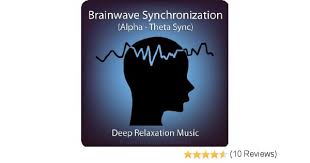The Relationship Between Memory Loss and the Brain
Markers of Change: Related to the discussion of change, there seem to be two particularly powerful markers of change. One indicator is the ability to tell a coherent and meaningful story of one's own life and how one developed into the person one is today. For people who have had to defend against their experience, they often lack access to the right-brain information/memory/processing that would give their story a sense of "realness," and emotional coherence.
I am amazed by how often people come into my office and say they don't remember their childhoods much at all. When a psychologist helps brainwave shorts review you construct a more complete understanding of your life, it requires participation from so many parts of the brain that, again, integration is fostered.
A second indicator of growth is the ability to be in a state of mindfulness, as described above. To say a bit more, being mindful is similar to being a good parent to one's self. It is soothing knowing we are being paid attention to without judgment, for both children (who often calm down as soon as someone is there for them) and adults. In many ways mindfulness is about learning to have a positive, caring relationship with ourselves where we are willing to "show up" and notice what is going on for us.
I often try to take this a step further with my clients by bringing in an attitude not only of non-judgment, but eventually of compassion. At Deep Eddy Psychotherapy, we call this extremely healing relationship with oneself and one's experience "advanced mindfulness." I have many clients who enjoy using images to deepen this process, such as seeing their fear as a 4-year-old version of themselves whom they can then envision holding and comforting.
I am amazed by how often people come into my office and say they don't remember their childhoods much at all. When a psychologist helps brainwave shorts review you construct a more complete understanding of your life, it requires participation from so many parts of the brain that, again, integration is fostered.
A second indicator of growth is the ability to be in a state of mindfulness, as described above. To say a bit more, being mindful is similar to being a good parent to one's self. It is soothing knowing we are being paid attention to without judgment, for both children (who often calm down as soon as someone is there for them) and adults. In many ways mindfulness is about learning to have a positive, caring relationship with ourselves where we are willing to "show up" and notice what is going on for us.
I often try to take this a step further with my clients by bringing in an attitude not only of non-judgment, but eventually of compassion. At Deep Eddy Psychotherapy, we call this extremely healing relationship with oneself and one's experience "advanced mindfulness." I have many clients who enjoy using images to deepen this process, such as seeing their fear as a 4-year-old version of themselves whom they can then envision holding and comforting.

Comments
Post a Comment